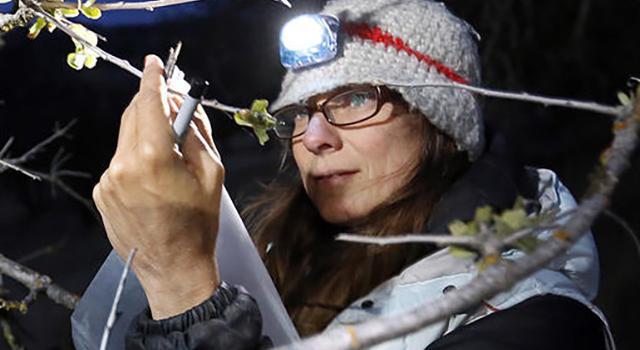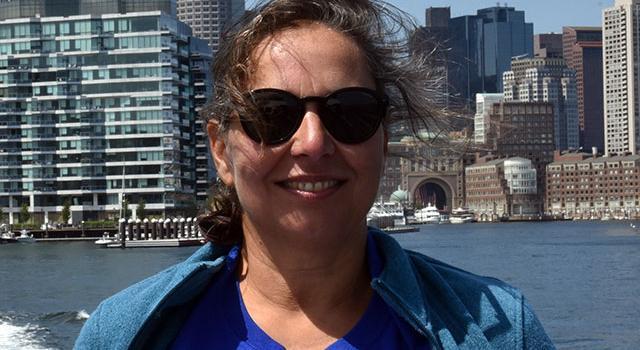Marine Science
The Five College Coastal and Marine Sciences (FCCMS) program draws on a rich array of courses and faculty specialists at the five college campuses, affording a range of study rarely available at the undergraduate level.
In 1986, a group of faculty from the Five Colleges created this program to give undergraduates the opportunity to explore some of these environmental issues. The program offers an interdisciplinary, hands-on curriculum addressing coastal and marine ecology/geology, resource management and public policy, oceanography, and coastal engineering.
Student Project Titles
- Ecology and Management of Three Caribbean Fisheries
- Aquatic Conservation, Ecology, and Environmental Science
- Oceanography and Coastal Engineering Public Policy
- Limnology
- The Biogeochemistry of Sediment Water Exchange
- Regional Planning Wetlands and Wetland Wildlife Resource Economics
- Trace Metals in Estaurine Sediments: Effects on the Grass Shrimp Palaemonetes pugio
- Coastal and Marine Resource Management
Sample First-Year Course
Pollution and Our Environment
This course will explore environmental pollution problems covering four major areas: the atmosphere, the hydrosphere, the biosphere, and energy issues. Several controversial topics, including acid rain, automobile emission, ozone layer depletion, mercury, lead and cadmium poisoning, pesticides, solid waste disposal, and problems of noise and thermal pollution will be addressed. We will emphasize some of the environmental issues affecting our immediate community, as well as those in developing nations. We will also do several project-based labs, gain understanding of scientific methodology, and learn how to write scientific research reports. Students are expected to engage in scientific inquiry and to view their investigations in broader context, gain a clear sense of scientific process, and to develop quantitative, oral, and written communication skills.
Sample Courses at Hampshire
- Agriculture, Ecology and Society
- Earth Resources
- Ecology
- Evolution of the Earth
- Geological Controversies
- Introduction to Geographic Information Systems and Natural Resource Management
- Introduction to Statistics
- Marine and Freshwater Ecology
- Microbial Ecology
- Pollution and Our Environment
- Research in Environmental Microbiology
- Sustainability Seminar
- Watershed Ecology
- Weather
Through the Consortium
- Algae and Fungi (SC)
- Aquaeous Geochemistry Biology of Marine Vertebrates (UMass)
- Carbonate Systems and Coral Reefs of the Bahamas (SC)
- Ecology and Geology of Coral Reefs: Past, Present & Future (SC)
- Ecology of Fish (UMass)
- History of Life (MHC)
- Ichthyology (UMass)
- Marine Ecology (SC)
- Marine Micropaleontology (UMass)
- Ocean Environments (MHC)
- Oceanography (SC)
- Paleoceanography (UMass)
- Sedimentology (AC)
- The Water's Edge (UMass)
Facilities and Resources
Five College Coastal and Marine Sciences program
As part of the Five College Coastal and Marine Sciences program, Hampshire students have many opportunities to pursue an interdisciplinary study of marine and environmental issues both in the classroom and the field. In consultation with a faculty member, students choose from over 100 courses to structure a carefully planned program of study. Over 75 faculty members from the five campuses are affiliated with the Marine Sciences program, and several serve as members of its steering committee. Scientists have realized that the best solution for effectively combating environmental problems is by coordinating research efforts with experts in such diverse fields as public policy, history, government, economics, and law, and so marine science embodies Hampshire's interdisciplinary approach and goes beyond the natural science studies of biology, marine ecology, organic chemistry, geology, and oceanography.
During the academic year, the program sponsors course-related field trips to local New England coastal sites, such as Mystic Seaport, Connecticut; the Darling Marine Laboratory, Maine; and the Marine Biological Laboratory in Woods Hole, Massachusetts. Additional field courses during winter and spring break take students to a variety of tropical environments. Recent field courses have made use of locations in the Bahamas and the Virgin Islands. Program-sponsored trips are subsidized to keep student fees as low as possible.
A monthly newsletter disseminates information about on-campus lectures and films as well as research positions, semester-long and summer programs of study, and career opportunities in the field. The program office houses a marine science library and posts announcements of volunteer positions as well as job listings to assist graduating students and alumni.
To help students remain current with research developments and provide career guidance, the program sponsors a variety of forums throughout the academic year, such as the Coastal and Marine Seminar Series, which features talks given by faculty researchers working in many parts of the world.
Certificate in Coastal and Marine Sciences
Students who fulfill the program requirements by taking advanced courses in four specified areas of Marine Science and participating in intensive field study (independently or with an affiliate program) may earn a Certificate in Coastal and Marine Sciences through the Five College Coastal and Marine Sciences program.



